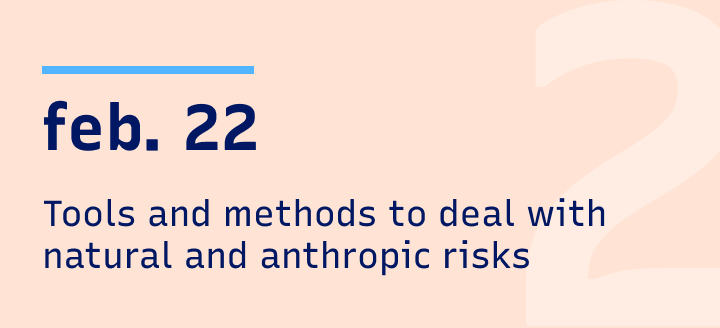

AI and Data Science for Disaster Resilience and Public Space
Venue: University of Florida, School of Architecture Gallery.
Objective
Equip participants with an understanding of how data science and AI techniques, together with game engines, are transforming response, addressing both opportunities and challenges, and engaging the community in disaster response.
Target Audience
This workshop is aimed at DCP students interested in leveraging AI, data science, and game engines to improve disaster response. A basic understanding of disaster management concepts would be beneficial, although optional.
Data Collection / Crowdsourcing
Data Processing / Machine Learning
09h30 – 10h30
Introduction
Welcome and context-setting for the workshop.
Showcase of a Vulnerability Assessment Plan in Cedar Key
Lecture on the evolving role of AI and Data Science in disaster response
Lecture crowdsourcing data and community participation
Lecture on how to use game engines to visualize existing and crowdsource collected data for disaster response.
10h30 – 11h30
Building Disaster Resilience through AI
Demo on AI and Data Science to automatically recognize objects and surface recognition
Demo on collecting and visualizing data
Demo on Enhancing community and infrastructure resilience using data-driven insights visualized and interacted with game engines.
11h30 – 12h30
Conclusion and Q&A
Reflecting on the transformative potential and limitations of AI and data science in disaster contexts.
How visualization and interaction through game engines can modify community perception of safety.
Open forum for participant questions, insights, and feedback.
Resilience and Heritage
Venue: University of Florida, School of Architecture Gallery.
Objective
The track on Resilience and Heritage delves into the symbiotic relationship between built heritage and resilience in the face of disasters and dynamic environmental challenges. This track aims to explore how preserving and integrating heritage into urban planning and disaster management strategies can foster more resilient communities. Heritage, encompassing historic structures, monuments, cultural landscapes, and traditional architectural practices, not only carries immense cultural and historical significance but also plays a pivotal role in enhancing community resilience. The Resilience and Heritage workshop invites researchers, practitioners, heritage experts, and community representatives to share their experiences, insights, and research findings. Together, we aim to explore innovative ways to integrate heritage considerations into urban planning, disaster management, and resilience-building strategies for a more sustainable and culturally rich future.
Target Audience
This workshop is aimed at students interested in documenting and preserving cultural heritage through environmental change and disasters.
14h30 – 15h00
Introduction
Welcome and goals for the workshop
Lecture on heritage preservation in post-disaster recovery and remote sensing
Lecture on adaptive reuse of heritage structures for resilience
Lecture on negative heritage and intangible heritage preservation
15h00 – 16h00
Remote Sensing Tools for Heritage Documentation
Demo on software and where to access remote sensing data
Demo on visualizing and sharing lidar data
Demo on tracking change with lidar and multispectral data
Integrating remote sensing with on-the-ground research and local knowledge
16h00 – 16h30
Conclusion and Q&A
The future of big data, AI, and remote sensing for heritage preservation
Open forum for participant questions, insights, and feedback
Whit Schroder is an Assistant Professor in the Department of Anthropology at the University of Florida (UF) and an affiliate faculty member with the Center for Latin American Studies and the American Indian and Indigenous Studies program. He received his Ph.D. in Anthropology from the University of Pennsylvania in 2019, joining the University of Florida as a postdoctoral Associate with the Florida Institute for Built Environment Resilience before becoming an Assistant Professor in 2023. Whit is an anthropological archaeologist interested in how communities shape their landscapes to address socioenvironmental crises. His work has involved the use of airborne remote sensing using lidar and multispectral satellite imagery to map archaeological landscapes and to track land cover change. Whit currently directs the Proyecto Arqueológico Bajo Lacantún (Lower Lacantún Archaeological Project) in Chiapas, Mexico to investigate the political ecology and resilience of Maya communities and political centers beginning at least 1,500 years ago in the fluvial environment of the Lacantún and Upper Usumacinta Rivers.
Is an urban theorist and urban storyteller with a background in architecture. Carl serves as the Assistant Director of the Florida Institute for Built Environment Resilience (FIBER)and Assistant Scholar at the School of Architecture at the University of Florida (UF). Brisotto holds a Ph.D. in Design, Construction, and Planning from UF and a Professional Architecture degree from the University IUAV of Venice. At the core of Carla’s research lies the intersection of urbanism and environmental narratives. Her research focuses on productive landscapes and climate change’s asymmetric impacts on population and their places through contemporary and historical lenses. Carla employs storytelling as a research method and works closely with communities within the Florida Resilient Cities Lab to understand the dynamics of spontaneous urban transformation. Currently, Carla is leading the international project “ReclaiMEDLand” funded by the Department of State of the United States of America, APS–Annual Program Statement 2023.